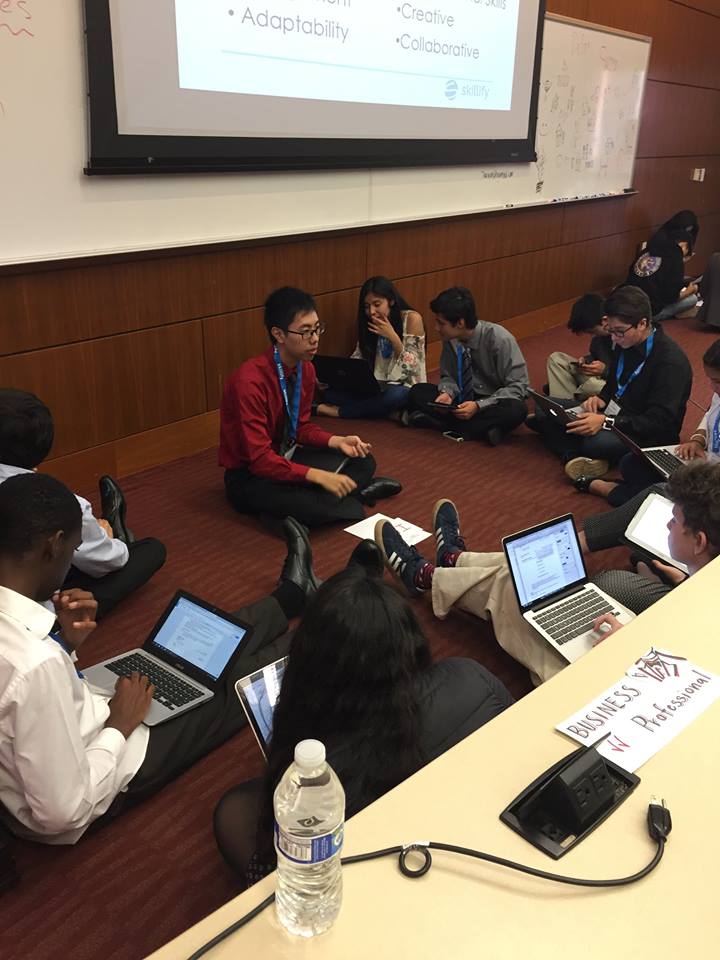
29 Sep The Importance of Understanding Career Assessments for Students
“Can’t I just take a couple career assessments? Then I’ll know what career is right for me.”
When I was in eighth grade, my advisor asked all of her students to take a career assessment. I knew I wanted to be a doctor, and the career assessment was about to validate that dream! Except that it didn’t… Instead, it told me I should be a clergy(wo)man. I then proceeded to take the test over and over again, manipulating my answers until the final page said “DOCTOR.” Phew.
Back in eighth grade, and pretty much all throughout high school, I thought that career assessments for students determined your career for you. And since then, I have met so many parents and students who share this same misconception. I am always asked if I can provide a career assessment to help a student choose a career. Or students will approach me with results of an assessment they have taken in the past. They believe that this is the career that they are supposed to pursue. Unfortunately, due to this misconception, too many students pigeon-hole themselves into pursuing a specific career path.
According to the Business Dictionary, Career Assessment refers to “tests and assessments taken to measure preferences based on the individual’s personality, character, traits, and skills.”
Its purpose is to help you become more self-aware, to understand what may make you happy. What your values may be, and what you may be good at…. NOT what your career should be. I’ve had several students come into Skillify because a career assessment for students told them they’d be good at X or Y, and now they felt immense pressure to fast-forward to finding internships in those fields even though they may not know what those fields entail.
Career Assessments for Students: Use Case
There is a story that Courtney, one of my team members shares when she talks to students. One of our students told her Skillify coach that she wants to work with horses, and a career assessment for students told her she should be a vet. The assessment validated her interest in working with horses.
But on the other hand, she was nervous because she really disliked her science classes and couldn’t stand blood. However, she felt pressure to get over those dislikes. Why? Because the assessment told her that her career would be in the veterinary sciences. Her Skillify coach introduced her to a vet, hoping the student would learn about other ways to work within her interests. Fortunately, the vet was able to understand the true reasoning behind why this student liked horses. She introduced the student to a horse masseuse, a specialization this student had never heard about. And after spending a few days shadowing this professional, the student fell in love with the newly discovered profession.
The moral of the story: A career assessment for students can help young people understand their preferences, so use it as one of the first steps towards interest exploration.
Drawbacks of Career Assessments for Students
On the flip side, career assessments may tell you to avoid certain industries. My colleague, Leslie was telling us how an assessment told her that she would dislike social work. But after doing many internships and jobs, she recognized her true interests. She is now pursuing her Masters of Social Work at USC! And guess what? She loves it…
So as you can see, career assessments for students should not be the sole tool to rely on. I was at the annual NACAC (National Association for College Admission Counseling) conference in Boston last week, and I lost count of how many counselors asked me for career assessments for students, or told me that they used those to ensure their students knew which majors to pursue in college.
Furthermore, too many students do not realize that many of the jobs they will have in the future may not exist today. So when they are asked to take career assessments for students without proper context or implementation, not enough are encouraged to validate those preferences. As a result, they miss out on learning about key industry trends and newly developed careers. They may go through high school, college, and maybe even grad school without having explored a career that truly resonates with them, all because they took a career assessment and pigeon-holed themselves into that field.
Advice
I was so happy to attend a workshop where one of the counselors, who had implemented a successful work-based learning program at her school, shared that her school make sure a needs assessment is provided along with a career assessment for students. The career assessment fulfills its purpose of helping the counselor understand her students’ preferences. The needs assessment, on the other hand, is what helps her understand what students have already done to actually explore those preferences. With that data, the counselor is able to implement effective programs to close the gap between knowing your preferences and actually exploring them.
When students come to me for advice, I encourage them to talk to people who have jobs they find interesting, and learn all about the industry, the different specializations, and how that climate is changing. I guarantee that they will learn key information that no career assessment for students would be able to provide.
In conclusion, to my educators who implement career assessments for students: please complement those with needs assessments and conversations around active exploration. And to my students: please use the results of a career assessment to help you take the first steps towards your interest exploration – do not trap yourselves!

No Comments